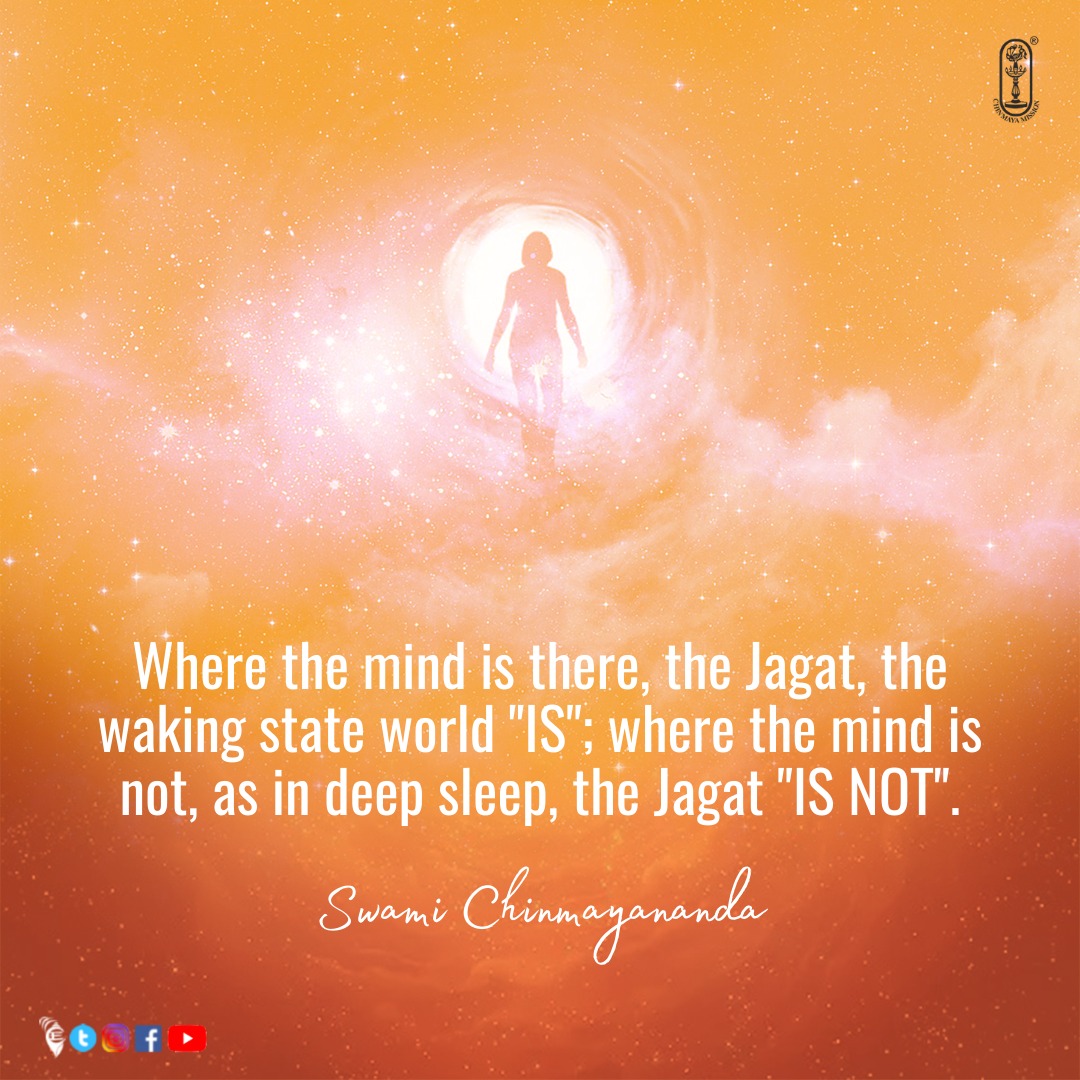A Master Message of the Ancient Rishis : 3. : Swami Krishnananda.
==============================================================
==============================================================
Wednesday, March 23, 2022. 06:00.
Thinking the Cosmic Totality- 3.
(Spoken on April 25, 1972 during night satsang on Swamiji's 50th birthday.)
===============================================================
Our thoughts and feelings are not in consonance with themselves. There is no system, order or method in the operation of our thoughts and feelings. They are chaotic emanations, as it were, which are not clear about their own purpose, and move at random, imagining that they follow a great principle which should lead them to success.
If the conscience is clear and we are honest to our own selves, we should be happy people in the world. But the way in which we exhibit ourselves in our practical activity, psychologically as well as physically and socially, is often such that our conscience always pinches at the bottom. It is difficult for us to be true to ourselves because to be true to ourselves would be to occasionally not listen to the reports of our senses and the lower mind. Our senses are, unfortunately, our bad servants. We have employed them to gather reports and give us information about things outside. They never tell us the true state of affairs.
Suppose we have a set of friends, advisors or servants on whose reports we always depend, and we act on their advice. If these friends always give us wrong information, contrary to fact, what will happen to us? Such are our friends, who are the senses, which tell us something quite different from what the facts are. The eyes, the ears, the tongue, the nose, and the sense of touch give us erroneous reports of the fact of existence, and they have sworn themselves, as it were, to tell lies only. They never tell a single truth to us, and we have wedded ourselves, as it were, to them so intensely from the very inception of our life that if this state of affairs were to continue, success and happiness would be far from us.
Therefore, the senses and the mind are not good guides. Inasmuch as logic and scientific understanding these days is also based on the report of the senses, these sciences and the arts of thinking are also not ultimately dependable. Logic is based on perceptional proofs. Logic is essentially a kind of inference that we draw on the basis of the perception of the senses, which is itself a hypothesis, which itself cannot be demonstrated as a fact of indubitable justifiableness. Such is also what we call the law or principle of science, by which we swear today. All this is a muddle of life, a complete confusion, and while it appears that we are progressing, we are actually receding from our centre. We are completely side-tracked in our life. We are shown a wrong direction of approach, which we have mistaken for the right one. We cannot ultimately depend on anything that hangs on the report of the senses, or the mind which listens to the voice of the senses. It is on account of this difficulty that one of the famous aphorisms of the Brahma Sutra tells us that the shastra is our guide: śāstrayonittvāt (Brahma Sutra 1.1.3).
The revelation of the Masters, which is intuitive recognition of Reality, is to be our guide in life. We have to bow our heads before these great souls, the saints and sages whose direct perceptions of truth are embodied in the shastra, or the scripture. The Vedas and the Upanishads, and such other revelations of the religions of mankind are to be our guide when we cannot have a visible living guide in the form of a Guru or a spiritual teacher.
But we need not despair. That kshetrajna, the God Supreme, the Purusha who is in all bodies and personalities and in all beings, Himself is our ultimate Guru. Sa eṣaḥ pūrveṣām api guruḥ kālena anavacchedāt (Yoga Sutras 1.26): He is the Guru of all Gurus and knows where the disciple is. We need not, therefore, land ourselves in a state of despondency or a mood of melancholy that we are lost and have no proper guide. Wherever there is honesty and sincerity of purpose, success is certain. Everything necessary comes of its own accord. Why should not things come to us of their own accord when these things that we need are everywhere spread out before our eyes? Neha nānāsti kiñ cana (Katha Up. 2.11). The multitudinousness and variety of things which apparently keeps things away from us is not true, says the Upanishad. That which we actually need is spread out before our very eyes. It shall flow into us like a flood when the time for it comes. We are not beggars, poverty-stricken beings lost in this world, wanted by none. The whole abundance of God's creation is before us at our disposal, if only we would summon it for the proper purpose.
To be continued ...
==============================================================




.jpg)

Comments
Post a Comment